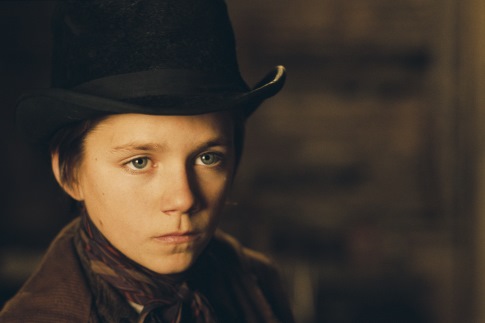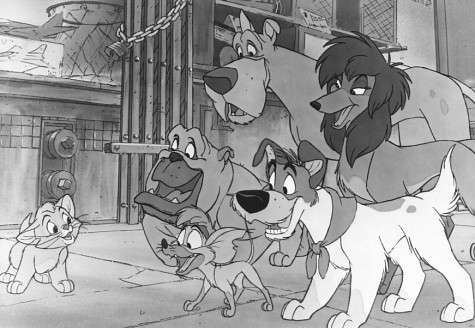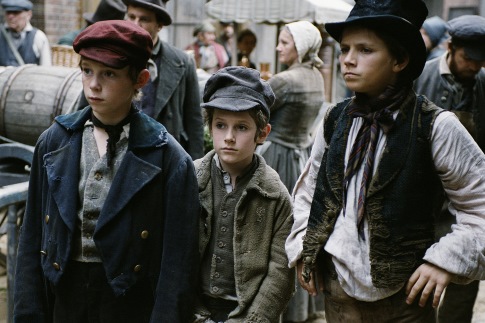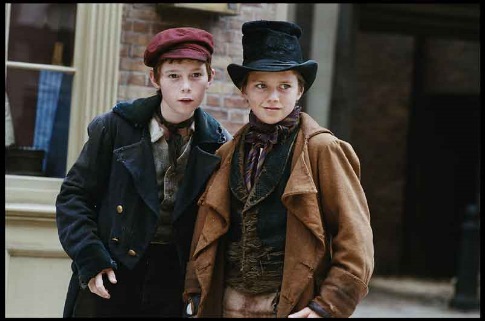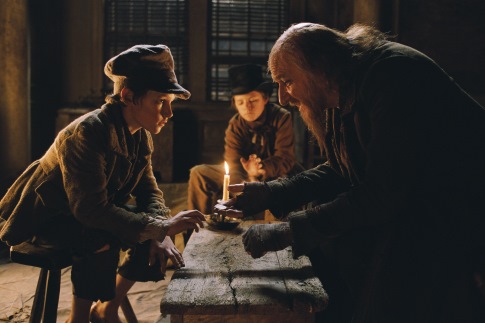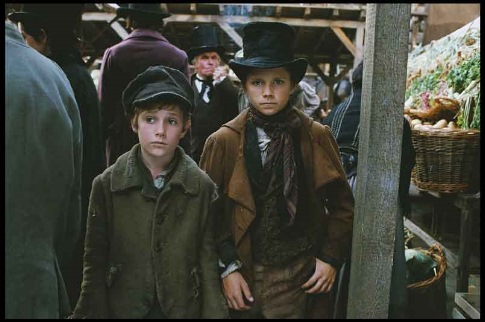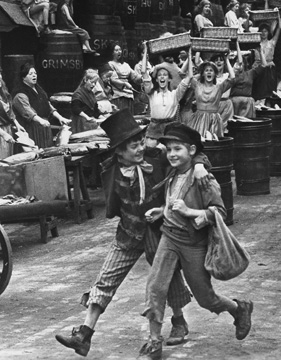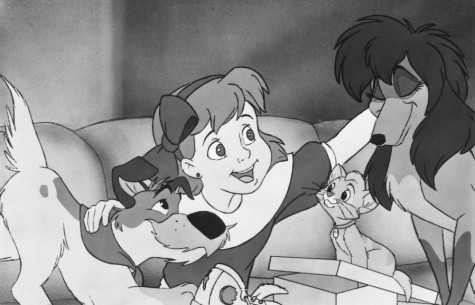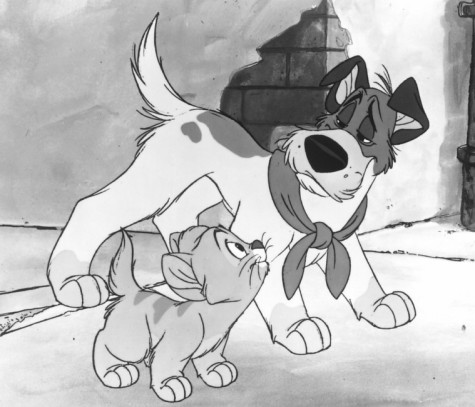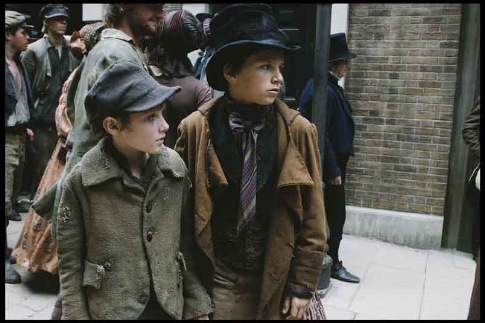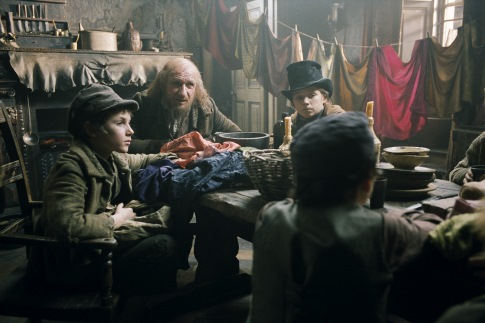Jack Dawkins, better known as the Artful Dodger, is a character in the Charles Dickens novel Oliver Twist. Dodger is a pickpocket, so called for his skill and cunning in that respect. He is the leader of the gang of child criminals, trained by the elderly Fagin.In the novel He becomes Oliver's closest friend (although he betrays him when Olive...
Show more »
Jack Dawkins, better known as the Artful Dodger, is a character in the Charles Dickens novel Oliver Twist. Dodger is a pickpocket, so called for his skill and cunning in that respect. He is the leader of the gang of child criminals, trained by the elderly Fagin.In the novel He becomes Oliver's closest friend (although he betrays him when Oliver is mistakenly caught) and he tries to make him a pickpocket, but soon realizes that Oliver won't succeed, and feels sorry for him, saying What a pity it is he isn't a prig! He also has a close relationship with Charley Bates. The Artful Dodger is characterized as a child who acts like an adult. He is described as wearing adult clothes which are much too large for him. Like an adult, he seldom gives in to childish urges.The Artful, meantime, who was of a rather saturnine disposition, and seldom gave way to merriment when it interfered with business, rifled Oliver's pockets with steady assiduity. Ultimately the Dodger is caught with a stolen silver snuff box and presumably sent to a penal colony in Australia (only alluded to in the novel). The absurdity of the master pickpocket being caught over something so small is remarked upon in the book.They've found the gentleman as owns the box; two or three more's a coming to 'dentify him; and the Artful's booked for a passage out,' replied Master Bates. 'I must have a full suit of mourning, Fagin, and a hatband, to wisit him in, afore he sets out upon his travels. To think of Jack Dawkinslummy Jackthe Dodgerthe Artful Dodgergoing abroad for a common twopenny-halfpenny sneeze-box! I never thought he'd a done it under a gold watch, chain, and seals, at the lowest. Oh, why didn't he rob some rich old gentleman of all his valables, and go out as a gentleman, and not like a common prig, without no honour nor glory! The Dodger chooses to consider himself a victim of society, roaring in the courtroom, I am an Englishman; where are my privileges? The judge has little patience with the Dodger's posturing, and orders him out of the courtroom immediately after the jury convicts him of the theft. Dickens describes him this way:With these last words, the Dodger suffered himself to be led off by the collar, threatening, till he got into the yard, to make a parliamentary business of it, and then grinning in the officer's face, with great glee and self-approval. He was a snub-nosed, flat-browed, common-faced boy enough; and as dirty a juvenile as one would wish to see; but he had about him all the airs and manners of a man. He was short of his age: with rather bow-legs, and little, sharp, ugly eyes. His hat was stuck on the top of his head so lightly, that it threatened to fall off every moment--and would have done so, very often, if the wearer had not had a knack of every now and then giving his head a sudden twitch, which brought it back to its old place again. He wore a man's coat, which reached nearly to his heels. He had turned the cuffs back, half-way up his arm, to get his hands out of the sleeves: apparently with the ultimate view of thrusting them into the pockets of his corduroy trousers; for there he kept them. He was, altogether, as roystering and swaggering a young gentleman as ever stood four feet six, or something less, in the bluchers. Dickens had first used a similar term in his previous novel, The Pickwick Papers. At the close of Chapter 16, Sam Weller refers to the recent schemes of Mr. Jingle: Reg'lar do, sir; artful dodge. The Artful Dodger, though a pickpocket, is not a heartless character. He has a great respect for Fagin, to whom he delivers all of the pickpocketing spoils without question.
Show less «

